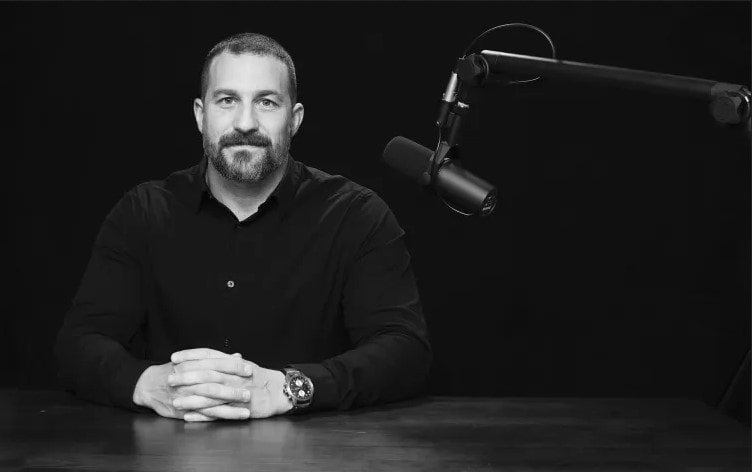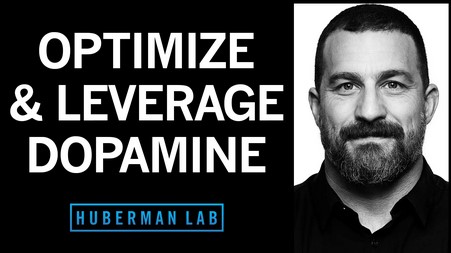In this episode, Andrew Huberman explains how dopamine dynamics – the changes and interactions between our baseline and peak levels of dopamine – control our cravings and sense of motivation. He also explains how to use dopamine dynamics to overcome procrastination. Andrew Huberman covers behavioral, cognitive, nutritional, and supplemental tools to optimize baseline and peak dopamine levels to ensure a sustained motivated state. He also explains how to increase motivation when you’re in a rut, why you shouldn’t stack behaviors/substances that spike dopamine levels, and how to build and maintain a “growth mindset” to pursue goals of any kind. Dopamine is an incredibly powerful neuromodulator involved in basic functions (e.g., hunger, romantic attraction, etc.) and cognitive and physical performance. By understanding the dynamics of dopamine, you should be better able to overcome procrastination, maintain motivation, and improve self-confidence.
About Andrew Huberman

Andrew Huberman, Ph.D., is a neuroscientist and tenured professor in the department of neurobiology and by courtesy, psychiatry and behavioral sciences at Stanford School of Medicine. He has made numerous significant contributions to the fields of brain development, brain function and neural plasticity, which is the ability of our nervous system to rewire and learn new behaviors, skills and cognitive functioning.
Huberman is a McKnight Foundation and Pew Foundation Fellow and was awarded the Cogan Award in 2017, given to the scientist making the most significant discoveries in the study of vision. His lab’s most recent work focuses on the influence of vision and respiration on human performance and brain states such as fear and courage. He also works on neural regeneration and directs a clinical trial to promote visual restoration in diseases that cause blindness. Huberman is also actively involved in developing tools now in use by the elite military in the U.S. and Canada, athletes, and technology industries to optimize performance in high stress environments, enhance neural plasticity, mitigate stress, and optimize sleep.
Work from the Huberman Laboratory at Stanford School of Medicine has been published in top journals including Nature, Science, and Cell and has been featured in TIME, BBC, Scientific American, Discover, and other top media outlets.
In 2021, Dr. Huberman launched the Huberman Lab podcast. The podcast is frequently ranked in the Top 15 of all podcasts globally and is often ranked #1 in the categories of science, education, and health & fitness.








